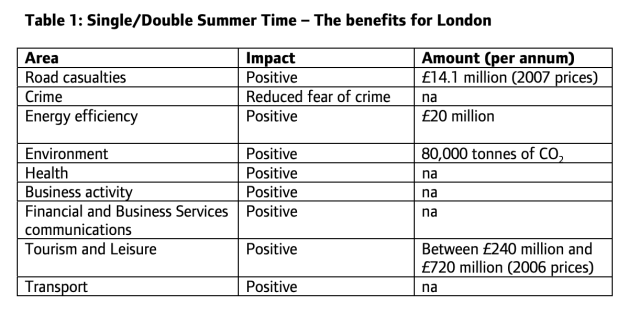
There is no recent London Assembly motion to end summer and winter time (daylight
saving), but there is a 2019 document from the Greater London Authority (GLA) that
discusses the potential move to Single/Double Summer Time (SDST) and its implications
for London. The GLA document highlights potential benefits and challenges, such as
fewer casualties from more rest but disorientation for drivers from earlier darkness and
environmental, 80,000 tonnes of CO2 reduction annually.

An analysis of the GLA Economics document called – Single/Double Summer Time: The
Time is Right for London gives analyses of the theoretical implications of moving
to SDST, which would mean canceling the clock change in October and keeping the clocks
permanently on GMT+1 throughout the year.
For example on the transport front, increased rest for drivers might lead to fewer
accidents. Yet we have the challenge that the sudden onset of darkness an hour earlier
in the evening during the winter could disorient drivers and make casualties more likely.
Transport timetables would require adjustment.
While there is no specific recent “motion” about ending summer and winter time, the
document serves as a policy analysis that could inform future discussions or motions by
Assembly members and Londoners more critically.
